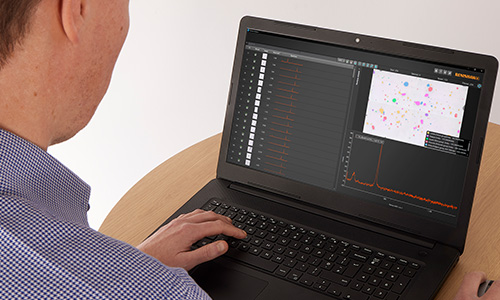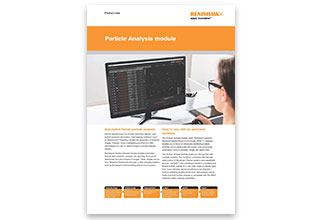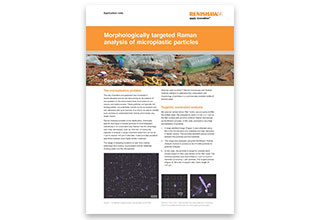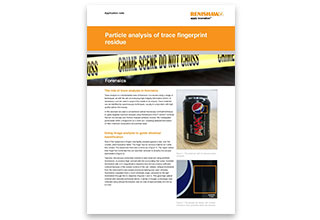Al momento, questa pagina non è disponibile nella lingua scelta. È possibile visualizzare una traduzione automatica realizzata con Google Translate. Renishaw declina qualsiasi responsabilità relativa alla fornitura di tale servizio e specifica di non avere controllato la traduzione.
È possibile contattarci per richiedere ulteriore assistenza.
Particle Analysis software module for morphologically directed analysis
The Particle Analysis software module identifies particles on microscope images. It reports on the morphology parameters (such as size and aspect ratio), and then guides the inVia™ Raman microscope to chemically identify them.
Target particles of interest
Raman imaging of samples can yield a large number of particles which can take a long time to process. Use Particle Analysis to contrast, size and separate individual particles in your image and generate a list from which to choose for analysis. Simply select your particles of interest for in-depth chemical analysis to save time. The list can be sorted and filtered to make even very large particle numbers easy to manage.
- Sort and select particles for chemical analysis based on morphology. This approach is called morphologically directed Raman spectroscopy (MDRS)
- Quickly access individual particle information
- Easily view particles with detailed colour thumbnails
Dedicated software for a range of applications
The Particle Analysis module is applicable to a wide range of different applications. These include the analysis of filtered environmental particles such as microplastics, deposited pharmaceutical sprays and inhalers, forensic trace materials, graphene and other 2D materials, and biological applications such as cytology.
Simple workflow for ease of use
Our six-step, automated workflow will take you from image generation to reporting results, ensuring that you don't miss a thing.
On-demand webinar: Particle analysis for targeted Raman spectroscopy
We show you how the diverse optical contrast methods of the inVia microscope can be used to automatically analyse particle identities and morphology. See how this works for a diverse range of applications, from microplastics and materials to forensics and pharmaceuticals.







